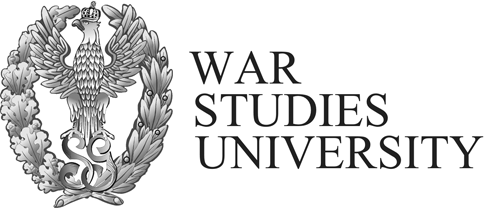Online first
Current issue
All issues
About
Aims and scope
Peer review process
Publication policy and ethics & malpractice statement
Editorial Board
Reviewers
Publisher
Guide for authors
Call for papers
Book Reviews
Special Issues Archive
New and emerging technologies in defence education, training and governance
Geodata sources and geoinformation systems in hydrometeorological security
1
Collegium Balticum University, Szczecin, Poland
Publication date: 2016-06-30
Security and Defence Quarterly 2016;11(2):93-109
KEYWORDS
geoportalsspatialweather informationmeteorological telegramweathersatellitesmeteorological radarsaerological systemISOKSMOK system
ABSTRACT
A definition of the concept of information was placed in the publication of spatial ata
with reference to the hydrometeorological systems covering the country. The next keys to
the encryption and transmitting of hydrometeorological measurement were specified in the
international system for warning against the dangerous phenomena of the weather. The
characteristics of meteorological data they presented were based on the system of weather
satellites (circumpolar and geostationary) and of the POLRAD radar system, included
in the radar security system of European space. At the end, a few examples were given
of geoportals monitoring the state of the natural environment and elements of the ISOK
security system, the SMOK system and SSH military system of the Republic of Poland.
REFERENCES (52)
1.
Drzewiecki D., 2001 – Geneza i dynamika wybranych zjawisk pogody niebezpiecznych dla.
2.
lotnictwa (na przykładzie zachodniej części dorzecza górnej Wisły), praca doktorska,.
6.
Drzewiecki D., Chaładyniak D., 2000, Satellite images acquisition from the Internet for.
7.
military meteorologists educating. IV International Symposium on Military Meteorlogy,.
8.
Hydro-meteorological support of allied forces and PfP member‘s tasks realization,.
10.
Chaładyniak D., Drzewiecki D., 2001, Application of GIRD data and satellite images.
15.
V International Symposium on Military Meteorology, Metoc Services’ Tasks in NATO.
19.
Drzewiecki D., 2015, Meteorological elements of selected historical events based on the.
20.
weather map digital reconstruction, Security and Defence, Central European Forum.
27.
Heede Richard, 2013 – “Tracing anthropogenic carbon dioxide and methane emissions.
28.
to fossil fuel and cement producers, 1854-2010”, Climatic Change (2014), Article is.
33.
Janiszewski F., 1988 - Instrukcja dla stacji meteorologicznych, Instytut Meteorologii.
35.
Jafernik H., Wilczek Z., Ziarko J., 2000, Meteorologiczna osłona działań lotnictwa. Dom.
37.
J. D. Macdougall, 2004 – “Frozen Earth: The Once and Future Story of Ice Ages” University.
42.
Moran J., Morgan M., 1989, Meteorology the atmosphere and the science of weather.
44.
Ostrowski M., 1999, Meteorologia dla lotnictwa sportowego. Aeroklub Polski. Warszawa.
45.
The CNA Corporation, 2007 – “National Security and the Threat of Climate Change”,.
48.
i sposoby ich ograniczania, wnioski dla nauki, praktyki inżynierskiej i planowania.
We process personal data collected when visiting the website. The function of obtaining information about users and their behavior is carried out by voluntarily entered information in forms and saving cookies in end devices. Data, including cookies, are used to provide services, improve the user experience and to analyze the traffic in accordance with the Privacy policy. Data are also collected and processed by Google Analytics tool (more).
You can change cookies settings in your browser. Restricted use of cookies in the browser configuration may affect some functionalities of the website.
You can change cookies settings in your browser. Restricted use of cookies in the browser configuration may affect some functionalities of the website.




